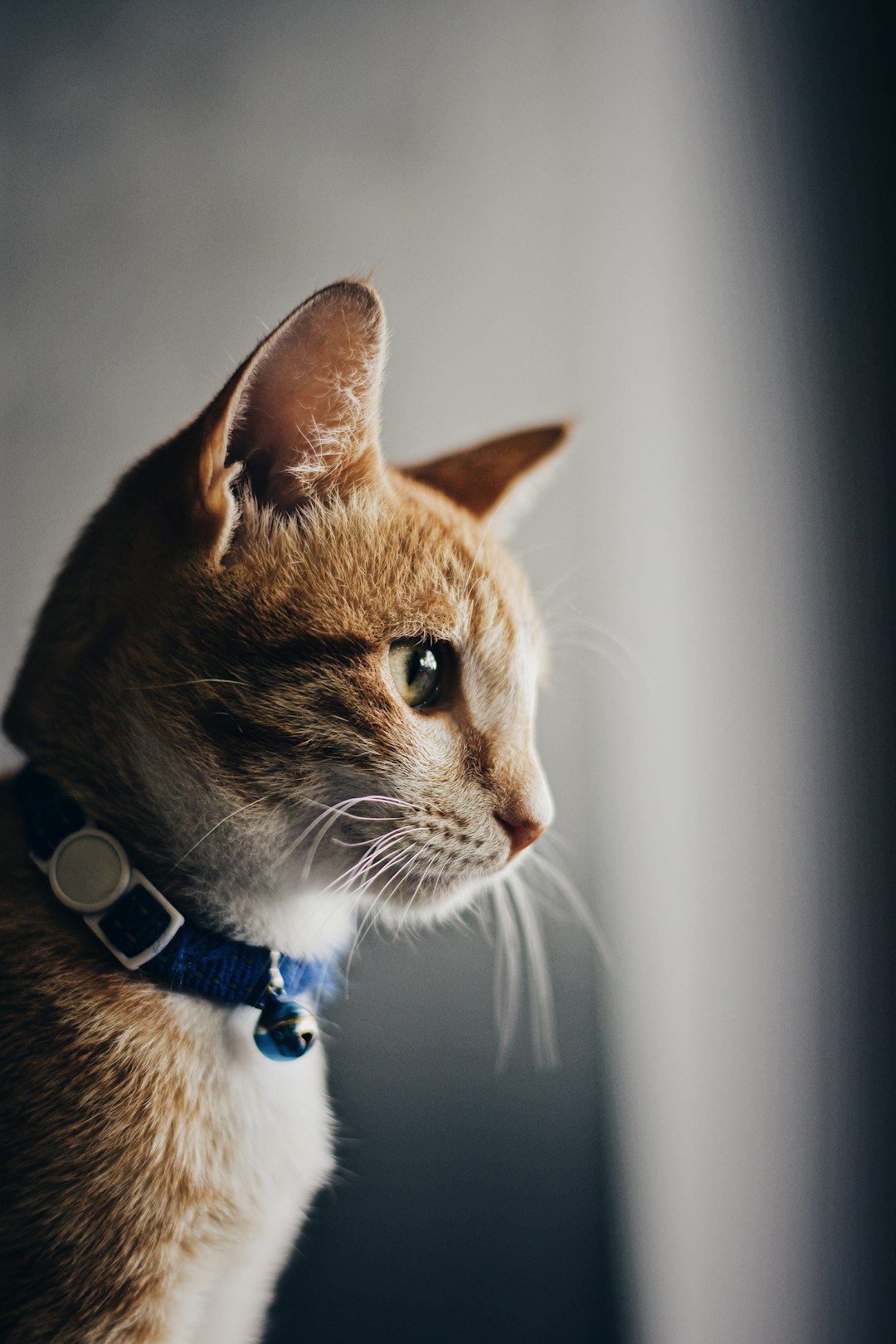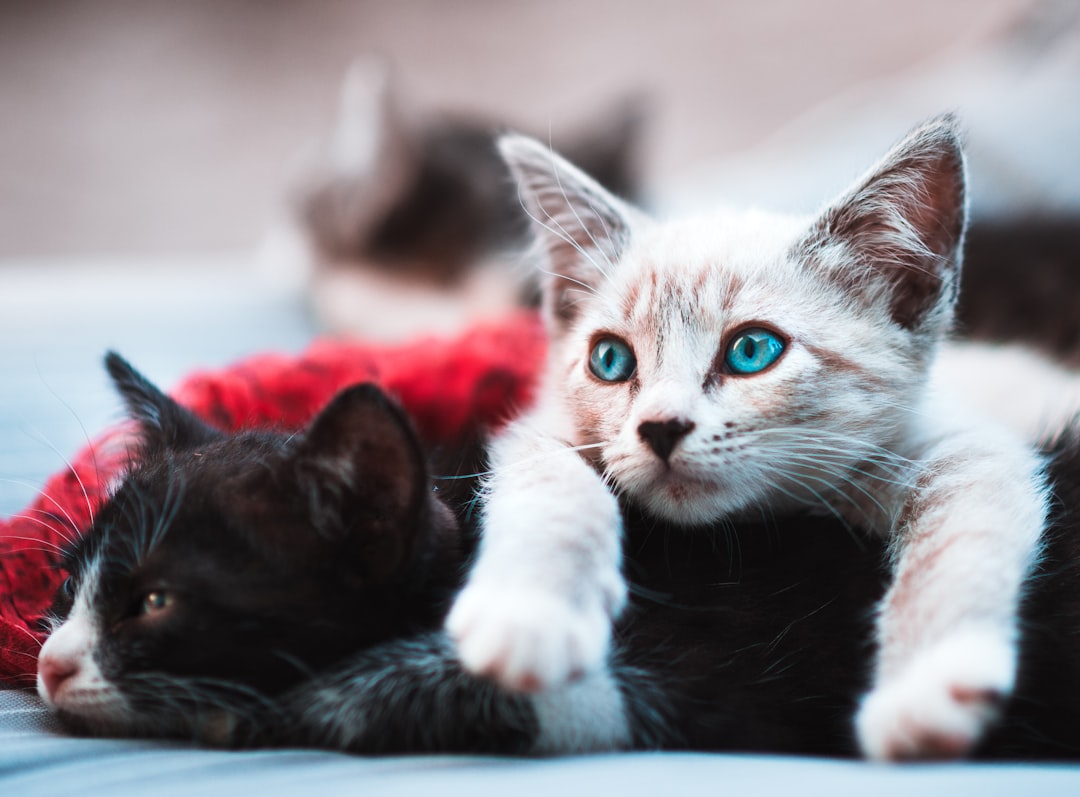Caring for your orange kitten requires understanding its unique traits and needs. These vibrant little furballs not only capture our hearts with their striking color but also possess specific care requirements to thrive. From ensuring proper nutrition to creating a nurturing environment, every aspect of their upbringing plays a vital role in their development. Additionally, socialization and regular grooming contribute significantly to their well-being. By following essential tips tailored for your orange kitten, you can foster a loving and healthy atmosphere that supports their growth and happiness.
Understanding the Unique Traits of Orange Kittens
Orange kittens are not only adorable but also exhibit distinctive traits that set them apart. Understanding these characteristics can enhance your experience as a cat owner. Here are some unique features of orange kittens:
- Color Variation: Orange kittens can range in shades from light cream to a deep, rich ginger. Their coat often has beautiful tabby patterns.
- Personality: Many owners report that orange kittens tend to be social, playful, and affectionate, making them wonderful companions. They often love to interact with people and other pets.
- Energy Levels: Expect your orange kitten to be energetic and curious. They enjoy exploring their surroundings, which can lead to playful antics.
With their vibrant personalities and striking appearance, orange kittens can easily capture your heart. Recognizing these traits can help create a nurturing environment where they thrive.

Essential Nutrition for Your Orange Kitten
Providing your orange kitten with proper nutrition is crucial for their growth and overall well-being. Here’s how to ensure your furry friend gets the best diet:
Key Nutritional Components
- Protein: Essential for growth, aim for high-quality protein sources such as chicken or fish.
- Fats: Healthy fats facilitate energy and protect vital organs. Look for omega-3 and omega-6 fatty acids.
- Vitamins and Minerals: Calcium and phosphorus are vital for strong bones. Include a balanced mix in their diet.
Recommended Food Types
| Food Type | Description | Benefits |
|---|---|---|
| Wet Cat Food | Moisture-rich and palatable | Promotes hydration and is often more appealing |
| Dry Cat Food | Convenient, promotes dental health | Can be more economical and helps with teeth |
| Kitten-Specific Food | Formulated for the growth needs of kittens | Ensures all essential nutrients are present |
Feeding Schedule
- Kittens (under 6 months): 4 meals a day.
- Older Kittens (6-12 months): Transition to 2-3 meals a day.
Ensure access to fresh water at all times. Feeding your orange kitten a balanced diet supports their energy levels and overall health, setting the stage for a vibrant, happy life!
Creating a Safe and Stimulating Environment
Creating a safe and stimulating environment for your orange kitten is crucial for their development and happiness. Here are some essential tips to keep in mind:
Safe Spaces: Designate a quiet area where your orange kitten can retreat when feeling overwhelmed. Use cozy bedding and create small hideaways using boxes or cat tents.
Playful Atmosphere: Provide a variety of toys that cater to their natural hunting instincts, such as feather wands and laser pointers. Rotate toys regularly to keep their interest piqued.
Climbing Opportunities: Incorporate cat trees or scratching posts. These not only encourage climbing and exercise but also provide a great outlet for their energy.
Environmental Enrichment: Introduce puzzle feeders to stimulate their minds. A well-fed orange kitten will stay engaged and active, helping to reduce destructive behavior.
Safety Precautions: Remove hazardous items, such as toxic plants and fragile objects. Ensure windows and balconies are secured to prevent falls.
By fostering a safe and enriching environment, you ensure your orange kitten thrives both physically and mentally, paving the way for a joyful companionship.
Socialization: Introducing Your Kitten to Family and Pets
Socializing your orange kitten is crucial for developing a friendly, well-adjusted feline. Here are some effective strategies to ensure a smooth introduction to family members and other pets:
Start Gradually: Begin with short interactions. Allow your orange kitten to explore its surroundings while family members maintain a calm presence.
Positive Reinforcement: Use treats and praise to reward your kitten for any positive behavior during introductions. This encourages good associations with new experiences.
Controlled Interactions: Keep initial meetings with other pets supervised. Use a baby gate or crate to provide a safe space where your orange kitten can observe without feeling threatened.
Set Boundaries: Ensure that both your orange kitten and existing pets have their own spaces. This reduces territorial disputes and helps everyone feel secure.
Consistent Routine: Establish a daily routine that includes playtime and bonding with family members. Consistency helps your orange kitten feel comfortable in its new home.
By following these tips, you’ll help your orange kitten become a beloved member of your family, leading to harmonious relationships with everyone at home.

Grooming Your Orange Kitten: Tips and Techniques
Grooming your orange kitten is vital for maintaining its health and happiness. Regular grooming not only keeps their coat looking beautiful, but it also promotes bonding between you and your furry friend. Here are some essential tips and techniques for grooming your orange kitten:
- Brushing: Use a soft brush to gently remove loose fur. Aim for 2-3 times a week to prevent mats and hairballs.
- Bathing: While most orange kittens don’t need frequent baths, occasionally bathing them with a kitten-friendly shampoo can help keep their coat fresh. Ensure the water temperature is warm but not hot.
- Nail Trimming: Trim your kitten’s nails every few weeks to prevent scratches and ensure they remain comfortable. Use a specialized kitten nail clipper for safety.
- Ear Care: Check your kitten’s ears weekly for dirt and debris. Use a damp cloth or a vet-recommended cleaner for gentle cleaning.
- Dental Hygiene: Start brushing your orange kitten’s teeth early with a toothbrush and toothpaste designed for cats.
By following these grooming techniques, your orange kitten will not only look great but will also feel great!
Health Care Needs for Orange Kittens
Caring for an orange kitten requires attention to their distinct health care needs. Regular veterinary check-ups are crucial for maintaining their well-being. Here’s a concise list of important health care elements:
- Vaccinations: Ensure your orange kitten receives core vaccinations, including rabies and FVRCP, at the recommended intervals.
- Parasite Control: Implement a parasite prevention plan for fleas, ticks, and worms. Consult your vet for suitable products.
- Spaying/Neutering: Consider spaying or neutering your orange kitten to prevent unwanted behaviors and health issues. Ideally, schedule this procedure around six months of age.
- Nutrition: A balanced diet is vital. Choose high-quality kitten food that meets their nutritional needs, focusing on protein content.
- Hydration: Always provide fresh water. Encourage your orange kitten to drink, especially if they eat dry kibble.
- Dental Care: Regular dental check-ups help prevent oral health issues that can affect their overall health.
By addressing these health care needs, you’ll promote a healthier, happier life for your orange kitten.
Training Your Orange Kitten: Best Practices
Training your orange kitten can be a rewarding experience for both you and your furry friend. Here are some effective techniques to ensure a successful training process:
Start Early: Begin training your orange kitten as soon as you bring them home. Young kittens are more receptive to learning and adapting.
Use Positive Reinforcement: Reward your orange kitten with treats, praise, or playtime whenever they exhibit desired behaviors. This encourages them to repeat those actions.
Keep Sessions Short: Limit training sessions to 5-10 minutes. Kittens have short attention spans, and shorter sessions keep them engaged and enthusiastic.
Establish a Routine: Consistency helps your orange kitten learn more effectively. Create a regular schedule for feeding, playing, and training.
Be Patient: Every kitten has its own pace of learning. If your orange kitten struggles with a command, repeat it gently without getting frustrated.
Socialization: Expose your orange kitten to various people and environments. This promotes confidence and reduces anxiety.
By implementing these best practices, you will not only train your orange kitten effectively but also strengthen your bond with them. Enjoy the process and celebrate their achievements!

Common Health Issues in Orange Kittens and How to Prevent Them
Orange kittens, while cute and playful, can be susceptible to specific health issues. As a responsible pet owner, it’s essential to be aware of these potential problems and take preventive measures. Here are some common health concerns for orange kittens:
Dental Issues: Like many cats, orange kittens can experience periodontal disease. Regular dental check-ups and daily teeth brushing can help maintain oral health.
Obesity: Orange kittens often have a hearty appetite, making them prone to weight gain. To prevent obesity:
- Monitor their food intake.
- Engage them in interactive playtime.
Respiratory Infections: Due to their playful nature, orange kittens might be exposed to other cats. Keep vaccinations up to date and minimize exposure to sick pets.
Feline Leukemia Virus (FeLV): This viral infection is more common in cats that spend time outdoors. Ensure your orange kitten is vaccinated and consider keeping them indoors.
By being proactive about these issues, you can ensure your orange kitten grows up healthy and happy. Regular vet visits coupled with a preventive care regime will enhance their wellbeing.
Frequently Asked Questions
What are the unique characteristics of orange kittens?
Orange kittens, also known as ginger or marmalade kittens, are characterized by their striking orange fur, which can vary in shade from light cream to deep red. They often have charming personalities, with many displaying playful, affectionate, and social traits. Their coat patterns can also include tabby stripes, making them look even more adorable. Additionally, orange kittens tend to have a distinct color that can become more vibrant as they grow older, making them a delightful addition to any household.
How can I ensure my orange kitten stays healthy?
Ensuring your orange kitten stays healthy involves a combination of nutrition, routine vet check-ups, and proper care. Start by providing high-quality kitten food that is rich in essential vitamins, minerals, and proteins to promote growth and development. Regular veterinary visits will help detect and prevent health issues early on. Additionally, ensure your kitten is up-to-date on vaccinations and preventative treatments for parasites. Socialization and exercise are also important; engage your kitten with interactive toys and provide a safe environment for them to explore.
What are the best grooming practices for orange kittens?
Grooming your orange kitten is crucial for maintaining their coat and overall hygiene. Depending on the type of fur, short-haired kittens generally require less grooming, while long-haired kittens need more frequent brushing to prevent tangles and matting. Regularly check their ears, teeth, and nails; clean their ears as needed and trim their nails to prevent overgrowth. Bathing should be done sparingly, as excessive washing can strip the natural oils from their fur. Aim for a grooming routine that keeps your kitten comfortable and their coat healthy.
What should I know about training my orange kitten?
Training your orange kitten is essential to ensure they grow into a well-behaved adult cat. Start with basic commands like ‘sit’ and ‘come’, using positive reinforcement such as treats and praise when they follow your direction. Kittens respond best to short, fun training sessions that keep their interest. Litter box training should be introduced immediately, as most kittens instinctively know to use it. Be patient and consistent; understanding that kittens learn at their own pace is key to successful training.



